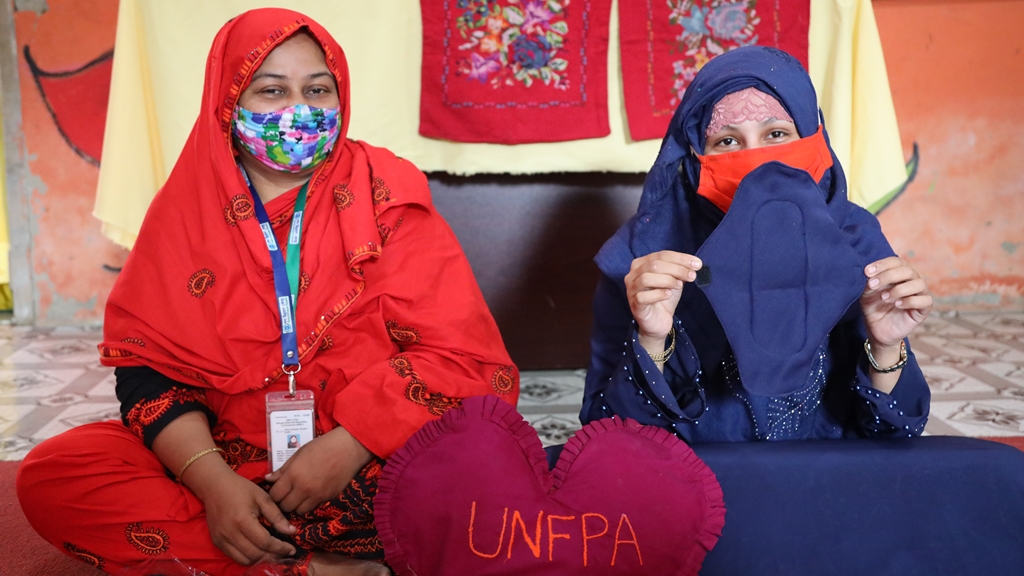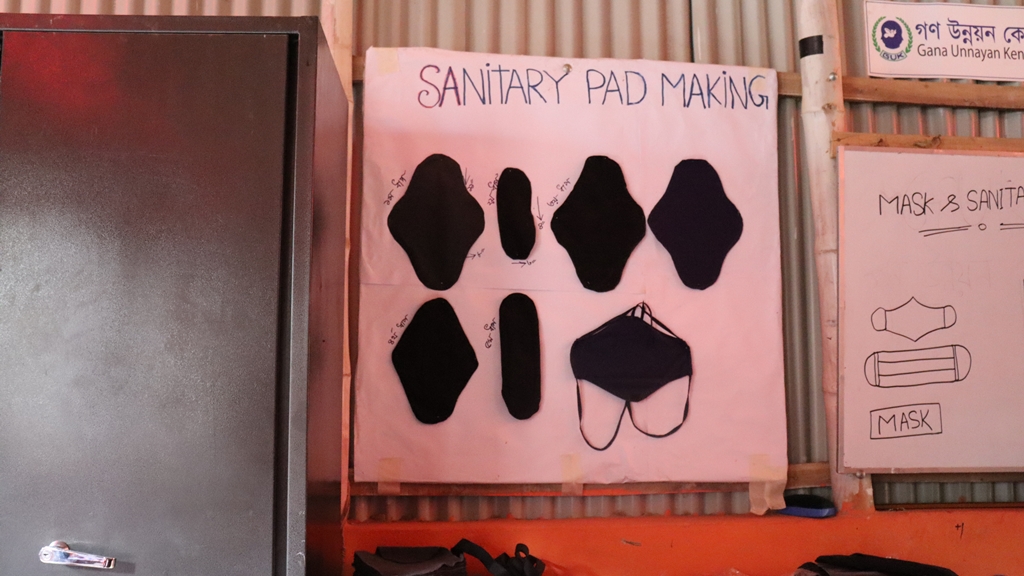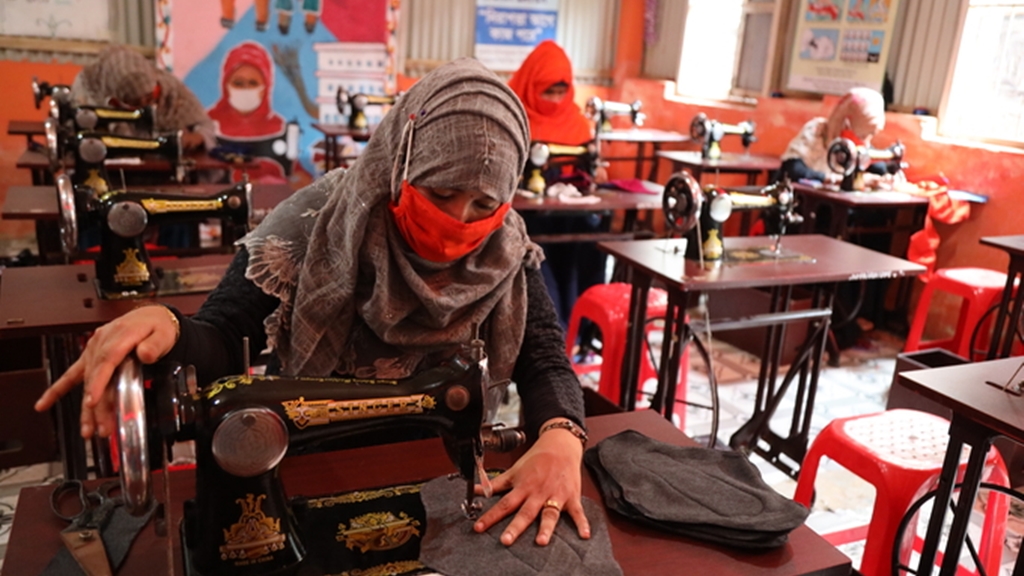
Rohingya women produce reusable sanitary pads in Cox’s Bazar
- 28/05/2021
- 0
By UNFPA
“Amidst the unstable conditions that we are living in, coming to the Women-Led Community Center gives us the opportunity to invest our time, energy and skills into a productive activity that can benefit us and the women in our community,” says Junaida, a young Rohingya woman living in the sprawling Rohingya camps in Cox’s Bazar.
Since January 2021, Junaida has been coming to the UNFPA-supported Women-Led Community Center in her camp to receive training on producing reusable sanitary pads for women in the Rohingya community. The aim of the initiative is to support Rohingya women to take care of their menstrual hygiene in a sustainable manner, as well as to give them the opportunity to cope with the stress caused by the ongoing crisis by engaging in activities beneficial for their community.
The inspiration for the initiative came from a focus group discussion with Rohingya women, where the need for women to have better access to sanitary pads was highlighted. Previously, many Rohingya women had received disposable sanitary pads with Dignity Kits that UNFPA had distributed to them. However, the women had felt that the pads had run out too quickly and lacked the means to buy new ones from the local market after finishing them.
To provide a more sustainable and dignified solution to the menstrual hygiene needs of women in the Rohingya community, the idea for producing reusable sanitary pads within the camps was devised. In addition to lasting longer due to their reusability, reusable sanitary pads are easy and practical, as women can wash and dry the used pads in a manner in line with cultural sensitivities.
“Especially for those of us who live in tiny places in the camps, being able to reuse and wash the pads saves us time and makes us feel more comfortable. It is no longer a burdensome task we need to undertake to care for our bodies every month,” Junaida explains.
In the first three months of the initiative, the women enrolled in the training programme have produced over 6500 reusable pads. Selina, the Head Master Tailor Trainer responsible for giving the classes, is impressed by the rate at which she has seen the tailoring skills of the women improve. “The women also feel empowered, because they are producing something that is beneficial to the health, well-being and comfort of women and young girls in the community,” she adds.

Junaida herself emphasizes how she finds a sense of purpose from the fact that her work is truly helping the women in her community who have gone through so much after fleeing to Bangladesh in 2017.
“Especially after the recent fire that damaged our homes in the camps, these pads are something that we all need. Periods do not stop during a crisis, in emergency settings or amidst a pandemic,” she declares.







